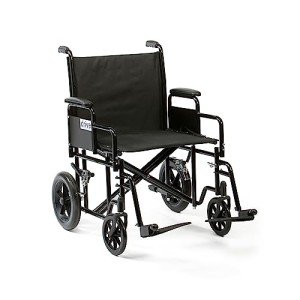Bariatric Transport Wheelchair
Developed to be pressed by caregivers, transport chairs include smaller front wheels and bigger rear wheels. bariatric transport wheelchair 400 lb capacity are a popular choice for users with limited mobility who can not stroll individually.
When shopping for a lightweight bariatric transport wheelchair, think about the user's requirements and how they'll utilize the chair. Likewise, measure any entrances and other spaces the chair will travel through.
Seating
Bariatric transport chairs include a big 22 to 36 inch broad seating area that accommodates extra-large users. The chair seat is made from breathable nylon and features padded arms that can be eliminated and swing-away footrests. Unlike basic wheelchairs, which are perfect for typical body weights, bariatric chairs have heavier frames built from reinforced products and bigger rear wheels that make it much easier to press them. Speak with a mobility professional for more information about your choices and to determine which kind of wheelchair is right for you. Bariatric wheelchairs are typically covered by insurance companies like Medi-Cal if your medical condition satisfies their coverage criteria.
Frame
Bariatric transport wheelchairs use durable frames made from strengthened materials like steel and have broader seats than standard wheelchairs. They are developed for people with greater body weights and can hold an optimum weight capacity of 700 pounds. They likewise have bigger rear wheels, which make them easier for caregivers to press. Bariatric wheelchairs are typically covered by insurance coverage such as Medi-Cal, depending on the patient's specific medical needs and medical diagnosis. Ask a healthcare expert or mobility expert to assist choose the ideal chair for your distinct requirements.
Click here for more information. Medline Bariatric Transport Chair. Crimson Hammertone Frame.
Weight

While standard wheelchairs have lighter frames and smaller sized wheels, bariatric transport chairs feature heavier-duty materials and a wider seat to accommodate users who weigh more than average. Due to the fact that of their specialized style and building and construction, they tend to cost more than basic chairs. Nevertheless, some insurance programs like Medicare and Medi-Cal may cover the cost of these chairs if the user fulfills the criteria for coverage. To learn more about which chair is ideal for you, contact a rehabilitation expert today.
Wheels
Bariatric transport wheelchairs have larger rear wheels than basic designs, making them easier to push. They're frequently utilized in healthcare facilities and home settings, where the chair is pressed by caretakers. The extra-large rear wheels also enable the chairs to browse a range of surface, including outdoors.
Basic wheelchairs normally have smaller sized wheels, which make them more maneuverable indoors but less ideal for daily usage on outdoor streets and other surfaces. Mobility specialists suggest talking to a health care company or mobility professional to select the finest wheelchair for your particular requirements and goals.
This heavy-duty, nylon strengthened steel transport chair supports clients approximately 500 pounds and features a roomy 22" seat, cushioned desk-length armrests, swing-away footrests and hand brakes. The 12-inch rear wheels make sure a smooth trip in any environment.
